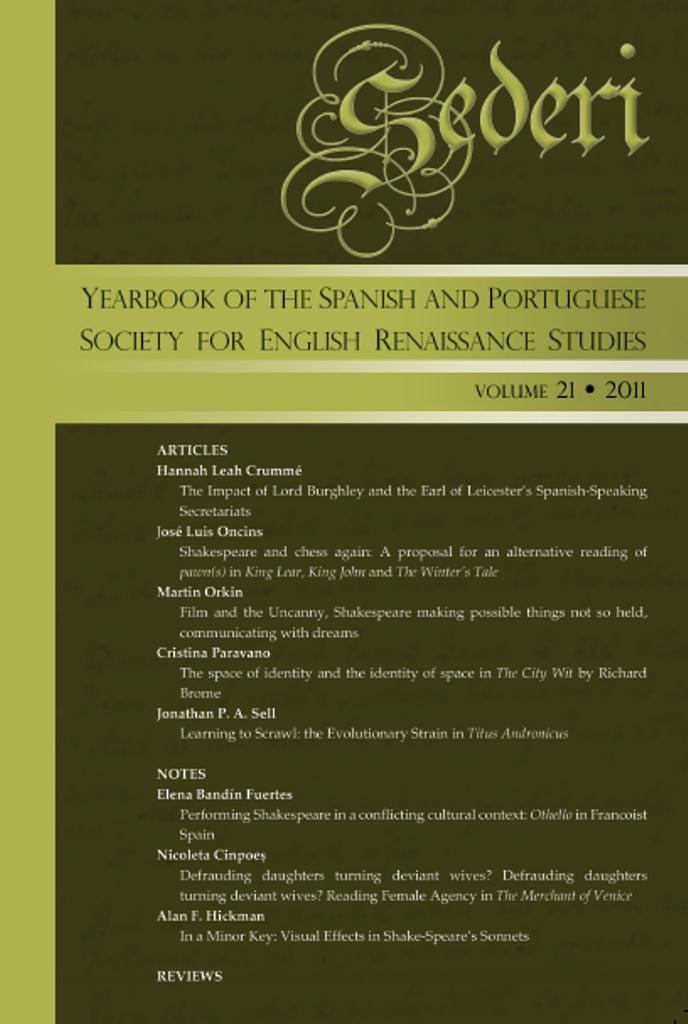Learning to Scrawl: The Evolutionary Strain in Titus Andronicus
Palavras-chave:
Titus Andronicus, evolution, civilization, barbarism, languageResumo
Much has been written on the semiotic obsessions of Shakespeare’s Titus Andronicus, less on their relationship with matters of theme. This paper argues first that the play’s engagement with the mutual relationships between language, labour and society draws on classical and early modern accounts of the symbiotic evolution of language and civilised society. It then suggests that the play’s particular rhetorical and kinesiological focus on hand and tongue anticipates the metonymies deployed in Darwinian accounts of human evolution. Key to this reading is the well-known scrawl/scrowl crux: far from opting for a definitive, exclusive meaning, the paper proposes that the semantic uncertainty unleashed at the crux mimics the play’s representation of Rome’s and, in the last resort, humanity’s hesitation between literate civilization and creeping barbarism. No longer a merely lexical quibble over the competing, variously obsolescent and emergent, notions of crawling, gesticulating and scribbling, the crux becomes the touchstone of an evolutionary reading of the play. Just as scrawl/scrowl debates endlessly between different stages on the human evolutionary scale...
Downloads
Downloads
Publicado
Edição
Secção
Licença
The copyright holder of the published contributions is SEDERI.The hardcopy and an open-access version of the journal will be published simultaneously. The issues will be available online in the SEDERI website (http://www.sederi.org/yearbook/) and other repositories that have signed an agreement with SEDERI.
The authors who publish with this journal agree to the following terms:
a) SEDERI retains copyright of the essay.
b) If the author wishes to republish or rewrite the essay for another journal, or include the essay published in SEDERI in their personal repositories, or in any other way, they should contact the editors to obtain permission to do so. This will entail citing SEDERI as the original source and sending the editors a copy of the new version, or the link to the website, in case of online publishing.
The author(s) hereby warrant(s) that:
a) The essay submitted for publication is an original creation and does not infringe any copyright or property right of another journal, author or publisher.
b) The essay submitted for publication has not been previously published, whole or in part, and is not being considered for publication elsewhere.
c) Written permission has been obtained for any material from other sources included in the essay submitted for publication.




